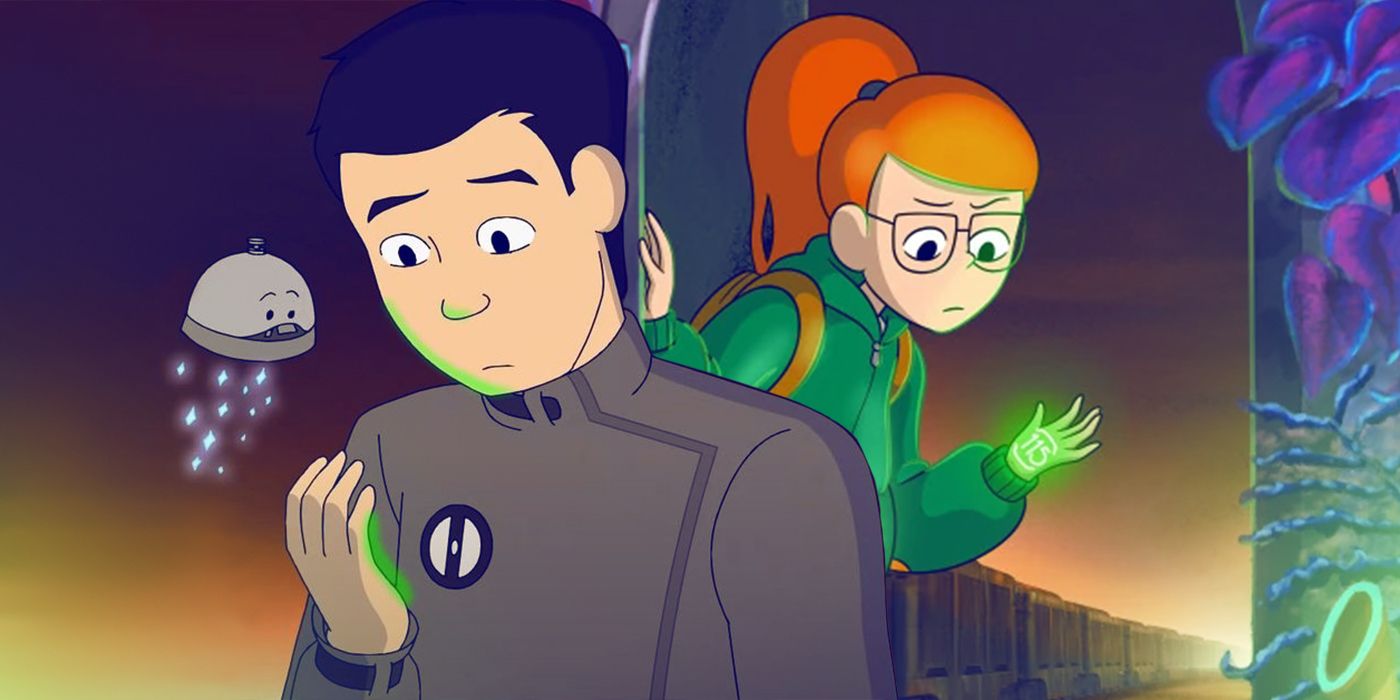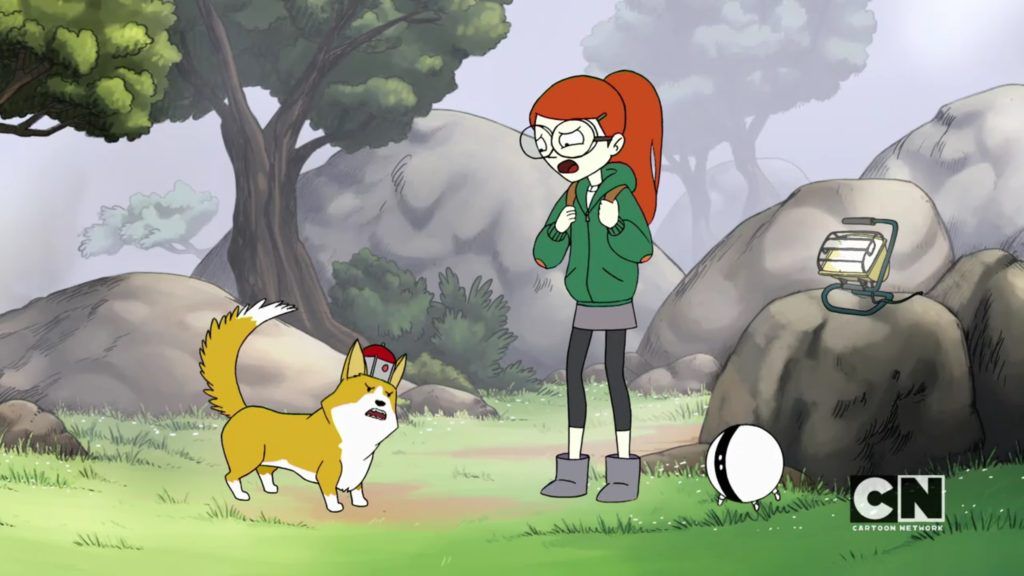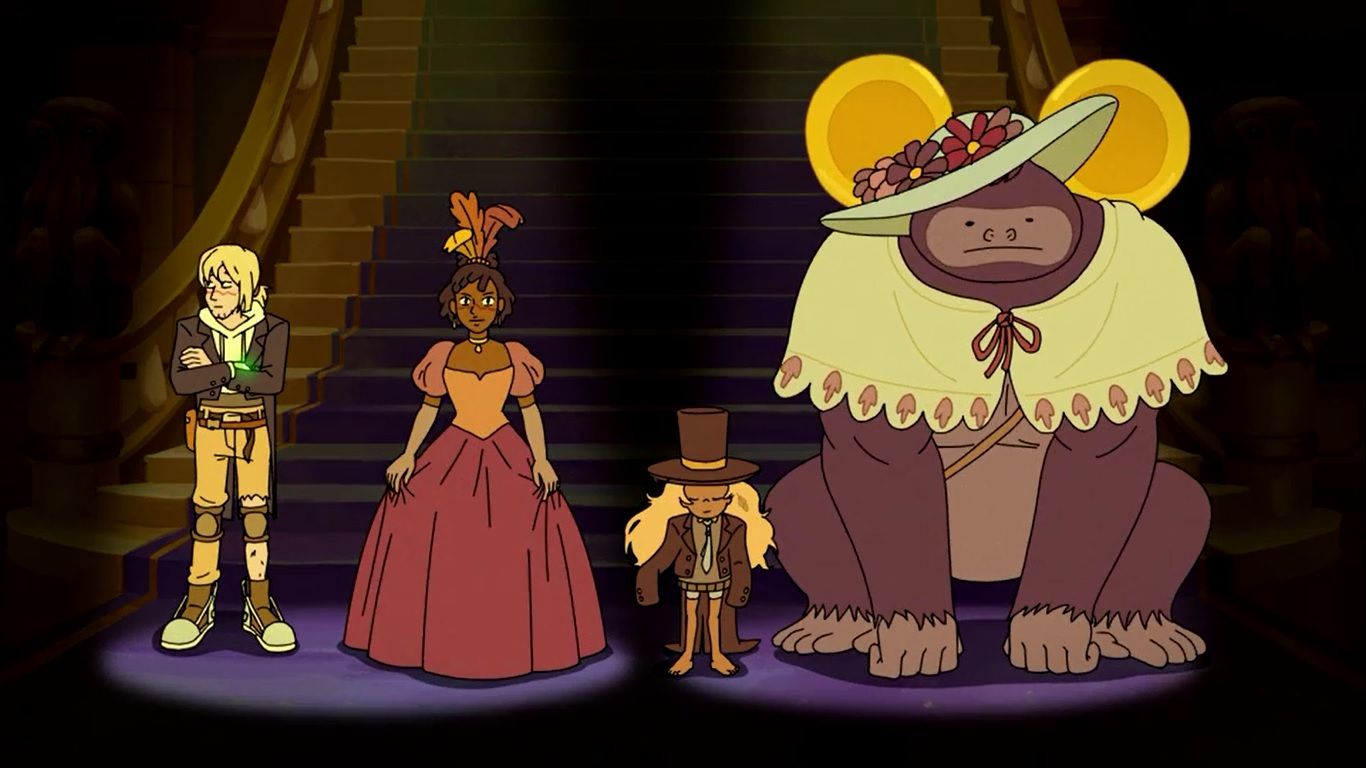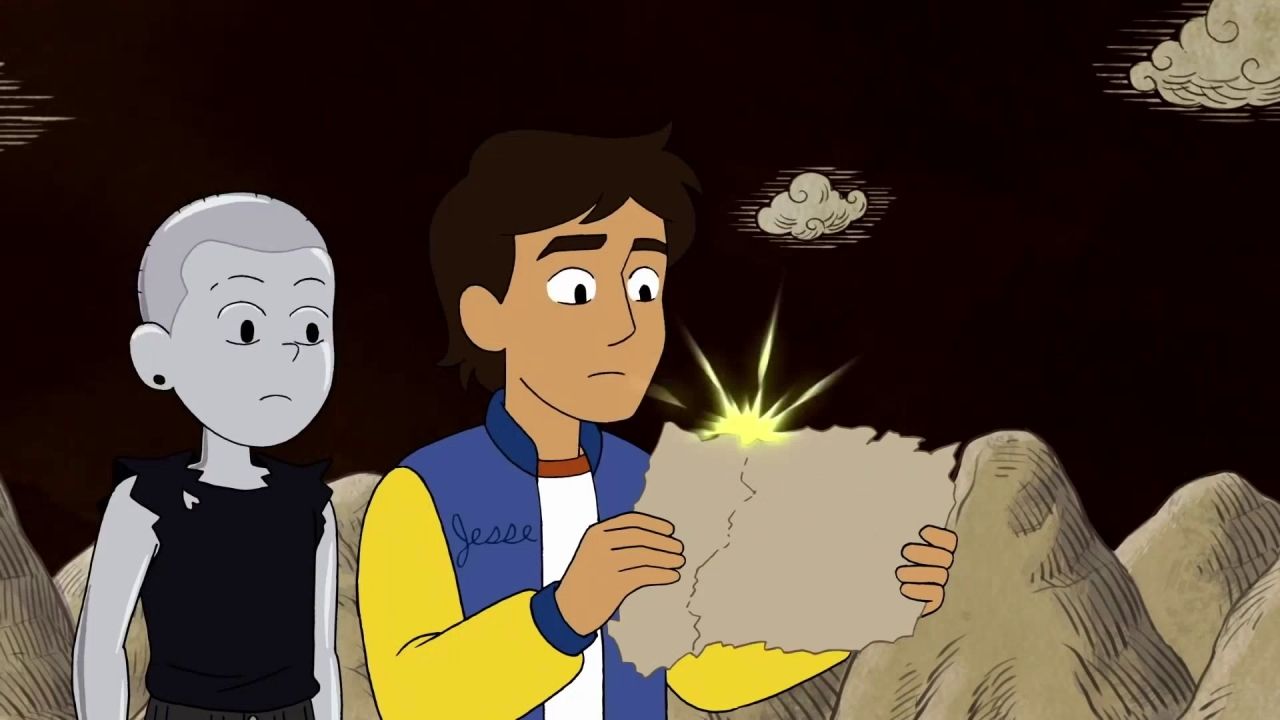As contemporary societal cultures continue to evolve and reform over time, so too, do our collective tastes in what is defined as appropriate media for various age groups. In the case of visual media, we are constantly shifting what we deem is appropriate within certain formats, such as animated cartoons. Things that were okay back when shows like The Flintstones had a commercial promoting smoking would never be tolerated on a television network aimed at children audiences today, and yet even today things aren’t as clear when it comes to what is passable for children’s entertainment. One such example of this persistent debate can be found in the situation regarding Infinity Train, an animated series that ran on Cartoon Network from 2019-2021, with the original pilot airing on the network’s app and YouTube channel back in 2016.
During that span of time, Infinity Train was able to release a total of four seasons, with the first two seasons airing on Cartoon Network directly and the latter two released on HBO Max for streaming. While the creator and executive producer Owen Dennis has gone on record stating that they had plans for up to an eighth season, Cartoon Network unfortunately decided not to continue with the show, stating that the fifth season “didn’t have a child entry point.” Not only does this decision not necessarily make sense given the show’s previous seasons and their ability to connect with children, but it raises some interesting questions regarding what the fifth season had in store that made Cartoon Network feel this way.
Looking at the first four seasons, the passengers (the individuals brought onto the train to help resolve their emotional traumas/issues) were all teenagers ranging from 13-18, though some of them were shown to have boarded the train at an even earlier age. This means that the show, while mature in its subject matter, was focused on showing children (teenagers especially) that these sorts of problems are natural to have at their age, and it teaches them in an entertaining way that it is important to tackle those issues head-on. The fifth season of Infinity Train, while revealed to be focused on a recurring adult character in the series, would still have been able to reinforce that message in a new way. By stating that the fifth season wouldn’t have a child entry point, Cartoon Network was insinuating that it would not be appropriate for children audiences. While we may never directly know the contents of the fifth season, what we do know is what happened in the first four seasons, which included topics about divorce, abandonment, and even death in multiple ways. These topics are no light matter, and Infinity Train always handled them with the respect that they deserved. To say that the fifth season wouldn’t have had a “child entry point” while the other seasons tackled such serious topics is confusing to say the least.
Taking a step back to look at other shows that Cartoon Network has aired to their conclusion, shows such as Adventure Time and Regular Show also handled mature topics with a more light-hearted tone such as brightly animated scenes or fantastical creatures. While characters such as Regular Show’s Mordecai (voiced by J.G. Quintel) or Adventure Time’s Jake the Dog (voiced by John DiMaggio) are fantastical and anthropomorphic in nature, that doesn’t take away from a child’s ability to understand the problems that they go through. This more “cartoonish” approach is mimicked within Infinity Train through characters such as King Atticus of Corginia, a talking corgi voiced by Ernie Hudson, or Tuba, a purple gorilla voiced by Diane Delano. Despite these characters being visually friendly and overall “child-friendly,” they are utilized to help children understand real issues that we may face in our own lives.
As mentioned previously, these other shows also discussed difficult topics such as struggling friendships, the complexities of relationships and how to deal with our sometimes unpredictable emotions. Of course, cartoons are not meant to be exclusively enjoyed by children, and sometimes these topics are meant to be more thoroughly understood by an older audience, but the point still stands that these shows were made and aired on a network whose target demographic is children. It is perplexing to understand exactly what aspect of Infinity Train’s fifth season made Cartoon Network decide to not continue with the show when they stated the lack of a “child entry point.”
Another potential reason for Cartoon Network making their decision to not move forward with the show could have been the focus on an adult protagonist. This too would be a poor reason, however, as it makes the presumptive statement that children are incapable of understanding or relating to adults at all. While the passenger in question for the fifth season would likely be dealing with traumas that most children would not have experienced themselves, it is borderline ignorant to expect that children would be completely detached from the character in their entirety. In fact, it is just as important for children to understand that even adults have emotional traumas that they struggle to overcome, as it helps bridge the gap between the two age groups and in turn shows that children aren’t alone in what they might be going through. Children can often see adults as completely different from themselves, and the ability to show that human emotions exist amongst all age groups is paramount to a healthy development from childhood into adulthood.
While there is still no current news about the continuation of Infinity Train, there is still hope for it to continue further down the line. One prime example of a cartoon show ending abruptly and subsequently being revived is Samurai Jack. That show ended in 2004, with the “final” episode being inconclusive at best regarding the larger narrative. In 2017, however, the show was brought back and instead placed into the program for Adult Swim, where 10 more episodes were produced and aired to give the series a proper send-off. Such a fate could happen to Infinity Train as well, as at the very least the creator is to this day ready to pick up the story right where it left off.
Great shows are ended prematurely all the time, be that for practical or impractical reasons. It is an unfortunate reality that sometimes these shows never get to see the conclusion that they deserve. With Infinity Train, however, the reasoning behind Cartoon Network’s decision to end the series after the fourth season was quite puzzling, to say the least. With the show’s history of respectfully tackling heavy subject matter, and with the network allowing for other series that at times handled their own mature topics to have a proper conclusion, one can’t help but feel that the network missed a great opportunity for the show to continue doing what it did best: teach children difficult lessons regarding emotions in a unique environment. Perhaps someday the show will be able to obtain that fated eighth season, but until then all we can do is continue to wait and show support for it when possible.




